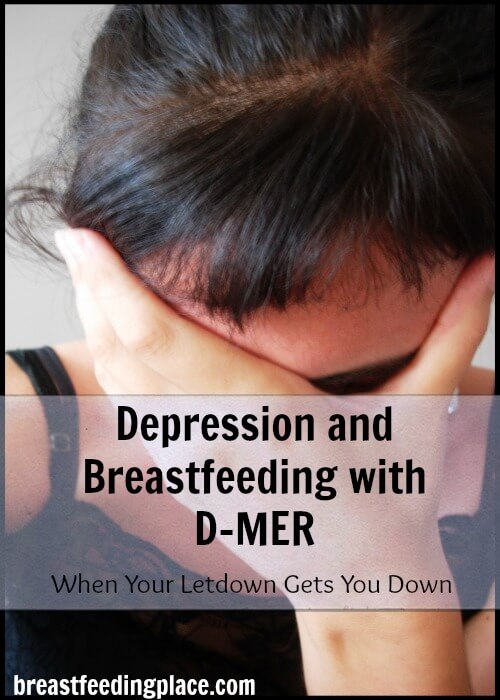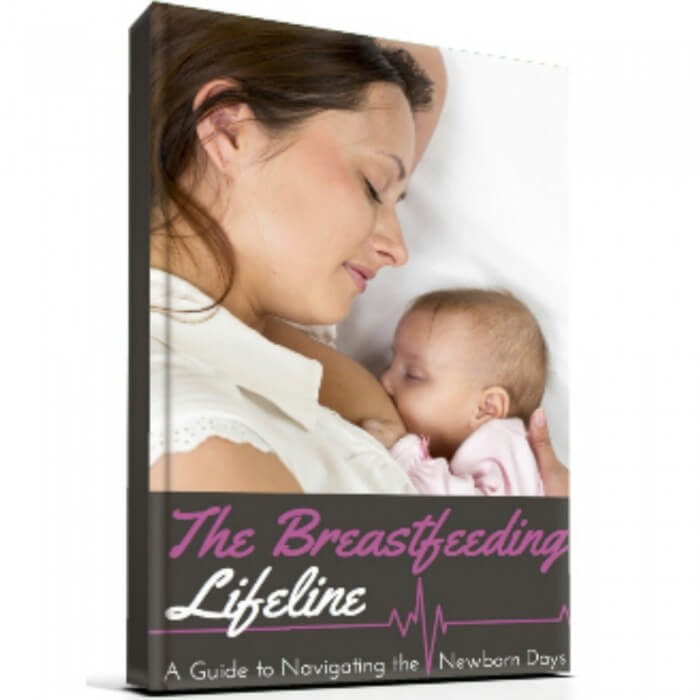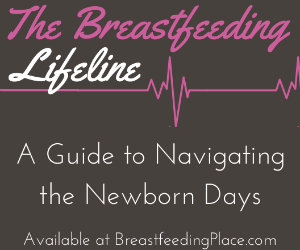The first few months of breastfeeding have been rough for me with each baby. I’ve struggled with depression and breastfeeding every time, lasting for the first few months. This depression is a bit different. It comes on very strong each time I have a letdown and lessens as baby nurses. It’s not just depression. It has a name and it’s real. It’s called D-MER or Dysphoric Milk Ejection Reflex. And it’s not fun.

I had never heard of D-MER prior to starting a family. After my first, I was surprised by my feelings of intense anxiety and depression surrounding breastfeeding. I thought it was all in my head. I didn’t talk to my doctor or lactation consultant. I suffered in silence. Alone. I felt like a failure, especially as I started having supply issues brought on by both thyroid imbalance and depression. I wish I had known about D-MER. I would have felt less crazy. Depression and breastfeeding is very real, postpartum depression is very real, and D-MER is an issue that needs awareness. Too many mothers are suffering in silence.
The definition of D-MER according to the National Institute of Health PubMed database is:
Dysphoric Milk Ejection Reflex (D-MER) is an abrupt emotional “drop” that occurs in some women just before milk release and continues for not more than a few minutes. The brief negative feelings range in severity from wistfulness to self-loathing, and appear to have a physiological cause.
One of the most important ways to help moms with D-MER is through education. Knowing that this is not a psychological reaction but a true physiological one was key for me. D-MER.org says
D-MER is like a reflex. It is controlled by hormones and can not be controlled by the mother. She cannot talk herself out of the dysphoria.
So, what does D-MER look like?
D-MER looks different in every woman. There is no known occurrence rate because most women don’t know it exists in order to seek help and have their struggle known. D-MER is seen in three intensities – mild, moderate, and severe. It ranges from feelings of homesickness or a churning in the belly to anger. It is expressed as despondency, agitation, or anxiety. Symptoms occur prior to milk ejection, or letdown, and resolve within a few minutes of breastfeeding as dopamine levels correct themselves.
What does D-MER look like for me?
As I mentioned earlier, I have struggled with D-MER with all four babies. For me, I feel extreme anxiety leading up to a feeding and extreme despondency as letdown happens. It takes about 3-5 minutes to resolve. I notice it with each feeding and random letdowns not connected to feedings through the day. I don’t notice it with pumping letdowns. I would say that I experience the moderate to severe intensity. I absolutely cannot eat while nursing because the anxiety makes me nauseated. I have felt much better after 3-4 months with each baby. My littlest just turned 3 months. I’ve noticed a slight improvement, but nothing significant quite yet.
Have you experienced D-MER or depression and breastfeeding? What was it like for you?






Wow! I have suffered from this with all 4 of my babies, having had no idea it was a ‘real’ thing. It has progressively gotten worse with each one to the point where I have severe anxiety and almost a panic attack each time I sit down to feed. It never happens on the pump only when feeding the baby. My youngest is 3 months and it is at its worst. The anxiety is overbearing. I have always had low supply problems with all 4 and just thought it was due to that, or that it was all in my head. I feel a complete sense of elation having read this article and knowing that it is real and I’m not alone.
Hugs! I’m in month 4 right now with baby 4. It has lessened a bit but still catches me off guard at times. I still can’t eat while nursing and with3 others to chase (6 and under), I don’t have many other times TO eat! You aren’t alone! You can do this. Just embrace it and ride the wave each time you nurse. I think the fear of being alone and/or crazy was the worst part.
Thank you, thank you. Happened to me with both of my children. I have learned about this already, but am so glad the word continues to spread. I think the stigma of mental health keeps people quiet, which is a shame.
I have this too and it happens with pumping for me also. I always described it to my husband as severe homesickness. It makes me want to stop everything and crawl into bed for comfort, but goes away a few minutes after letdown. I’m going on 7 months with my 3rd and it’s still there. I never knew anyone else who experienced it. It’s nice to know I’m not alone.
THIS ARTCLE WAS SO ENLIGHTENING! NOT SURE IF WHAT I FEEL IS D-MER BUT SOUNDS SO MUCH LIKE WHAT I EXPERIENCE.
Thank you! I pray that this information finds its way to all breast feeding Mama’s with this intense let down! I thought I was the only one…I experienced this with my first and continue to with my second. I describe mine as the start of an anxiety attack and the urge to vomit, I know nice right….the first few weeks of nursing I have to force myself to eat. As time goes I begin to get use to it, I know it’s coming and just hang on for the ride. When not nursing in public, I sometimes yell out a WOOHOOO!!! crazy but it helps. Press forward Mama’s!! You are not alone!!!
I have experienced this with only one of my 3. For me it was so intense. I had severe anxiety, had to get released from hospital just 1 day after birth because of that homesick feeling. I also had suicidal thoughts. I had to educate my doctor on it because she thought it was just PPD. It makes what can be such a beautiful wonderful thing so difficult.
That homesick feeling is what tipped me off finally about what might be going on with me. I’m so sorry you suffered as well.
I was thrilled when I found out that DMER was a real thing. When my second was 1, week old I was searching online for safety of a certain medicine & breastfeeding. I saw a pic of a woman in total anguish with a hand over her eyes and a child at her Breast , and I just thought “omg, that is exactly how I feel “. It made so much sense and really helped to have information.